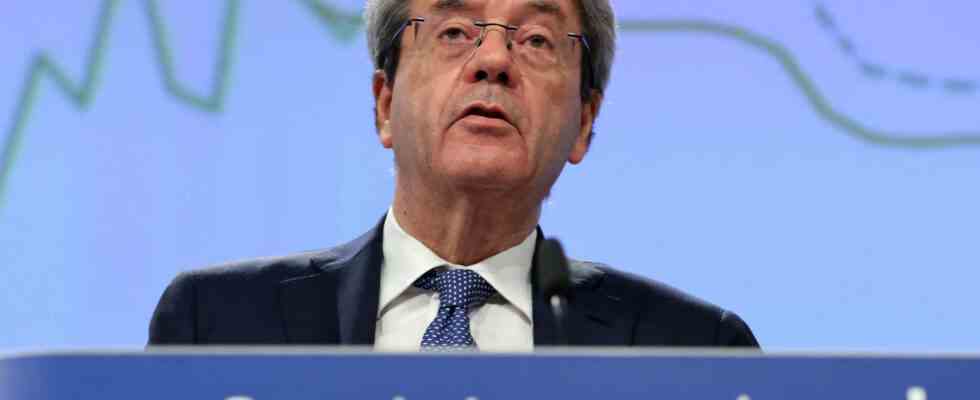More inflation. Less growth. The European Commission’s summer economic forecasts, published on Thursday 14 July, have darkened further under the impact of the incessant rise in energy and food prices, which are weighing on purchasing power and confidence; supply chain disruptions, due in particular to the drastic lockdowns in China; rising interest rates and falling US economic performance.
As predicted when the spring forecast was presented on May 19, gross domestic product (GDP) growth in the European Union should reach 2.7% this year. This apparent performance is due to the good momentum of the first quarter and the aftermath of the strong growth of 2021. In reality, economic growth will be sluggish in the coming months, despite the dampening effects of a tourist season which is slackening. announcement successful.
It is in 2023 that the economic situation of European countries should suffer from the war in Ukraine and its consequences. While the commission was counting, two months ago, on economic growth of 2.3% for the whole of the European Union, it now estimates that the Twenty-Seven will painfully reach the 1.5% increase in GDP in 2023. The French economy is expected to grow by 1.4% against 1.3% in Germany.
“Strong uncertainties”
As for inflation, it should rise further to reach unprecedented peaks in the history of monetary union, with 8.4% forecast in the euro area in the third quarter and an annual average of 7.6% in 2022, against the 6.1% that was still forecast in May. A slow decline is expected for the following year with probably an inflation rate of 4% in 2023. “ All of the risks we identified in May have materialized to varying degrees »commented Paolo Gentiloni, Commissioner for the Economy.
The extremely unstable nature of the world economy makes the forecasting exercise undertaken by the European executive even more complex, which, through the voice of Paolo Gentiloni, recognizes that “These forecasts are subject to strong uncertainties and downside risks”. As proof, the figures published today correct the shot of the previous forecasts, already unexciting, which dated May 19. It is even a recession that threatens the European Union in the event of a more radical interruption of gas flows from Russia. “A storm is possible”warns the European commissioner while the price of gas reached, on July 12, 173 euros per kilowatt hour against 40 euros a year earlier.
You have 37.79% of this article left to read. The following is for subscribers only.

